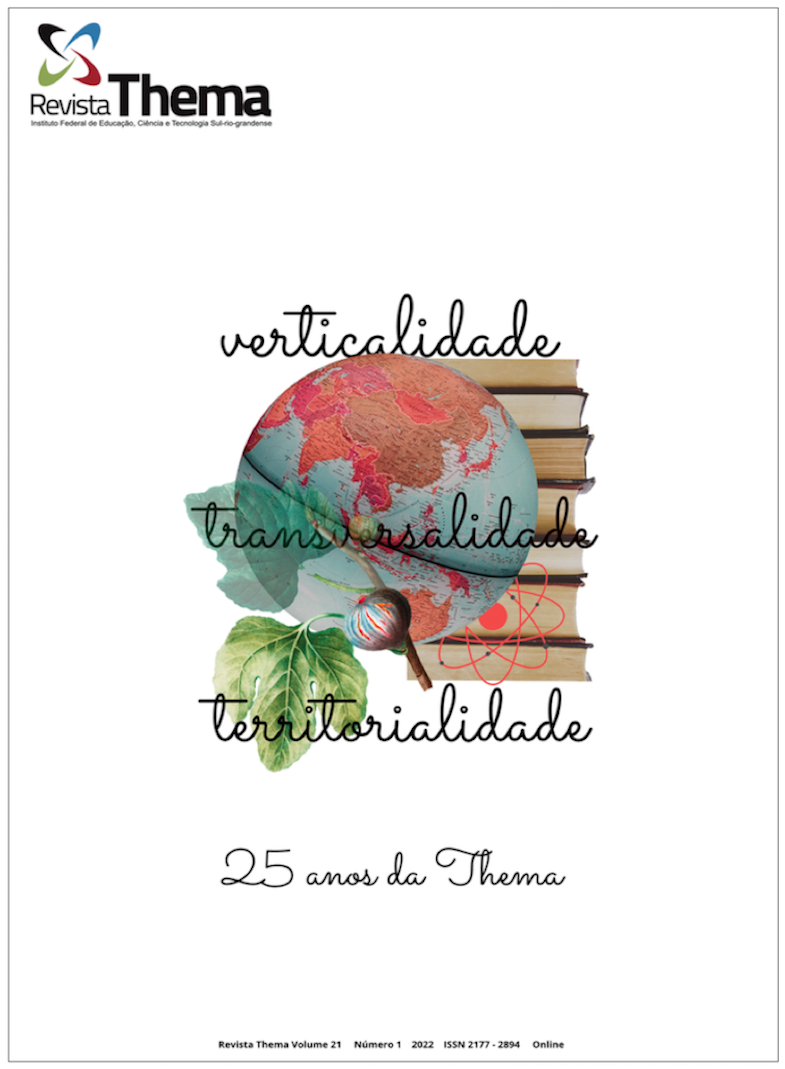Uma análise quantitativa da aplicação da Sala de Aula Invertida em uma turma de Química Experimental
DOI:
https://doi.org/10.15536/thema.V21.2022.40-54.2043Abstract
This article is a report of pedagogical experience with the discipline of Experimental Chemistry in the Food Engineering course of the Federal University of Ceará. The Flipped Classroom methodology was used as a methodological learning path. The objective is to identify if the pillars of this methodology and the theoretical references proposed by Bergmann and Sams (2016) were followed in the planning of the didactic unit of Experimental Chemistry and if the indicators of Ventura (2019) are revealed in the actions of the teachers involved. The didactic sequence included the distribution of materials previously via online tools, pre-laboratory activity, pre-laboratory explanatory class and experimental practice in Chemistry laboratories held in small groups. The interaction and discussion generated in practice with the chemical reagents and the reactions obtained with their precipitates, revealed itself in a greater appropriation of the theoretical contents studied and, the anticipation of the contents via Flipped Classroom greatly contributed to the "learning by doing" offered in the experimentation.
Downloads
Downloads
Published
How to Cite
Issue
Section
License
O autor responsável pela submissão representa todos os autores do trabalho e, ao enviar o artigo para a revista, está garantindo que tem a permissão de todos para fazê-lo. Da mesma forma, assegura que o artigo não viola direitos autorais e que não há plágio no trabalho. A revista não se responsabiliza pelas opiniões emitidas.
A Revista Thema é de acesso aberto (Open Access), sem que haja a necessidade de pagamentos de taxas, seja para submissão ou processamento dos artigos. A revista adota a definição da Budapest Open Access Initiative (BOAI), ou seja, os usuários possuem o direito de ler, baixar, copiar, distribuir, imprimir, buscar e fazer links diretos para os textos completos dos artigos nela publicados.
Todos os artigos são publicados com a licença Creative Commons Atribuição-NãoComercial 4.0 Internacional. Os autores mantém os direitos autorais sobre suas produções, devendo ser contatados diretamente se houver interesse em uso comercial dos trabalhos.





